Unconventional Fashion: Metrolink’s Sustainable Fashion Show
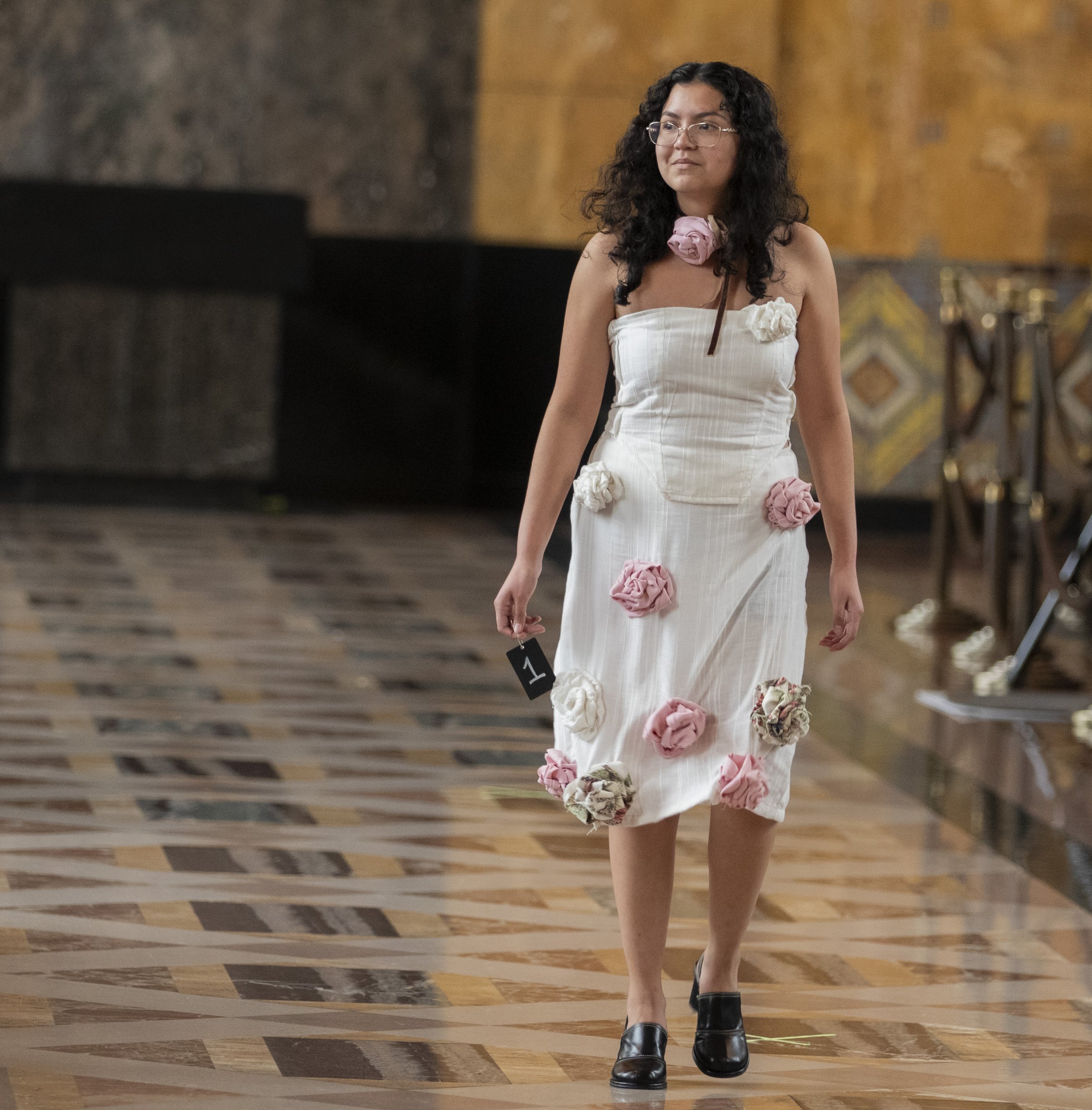
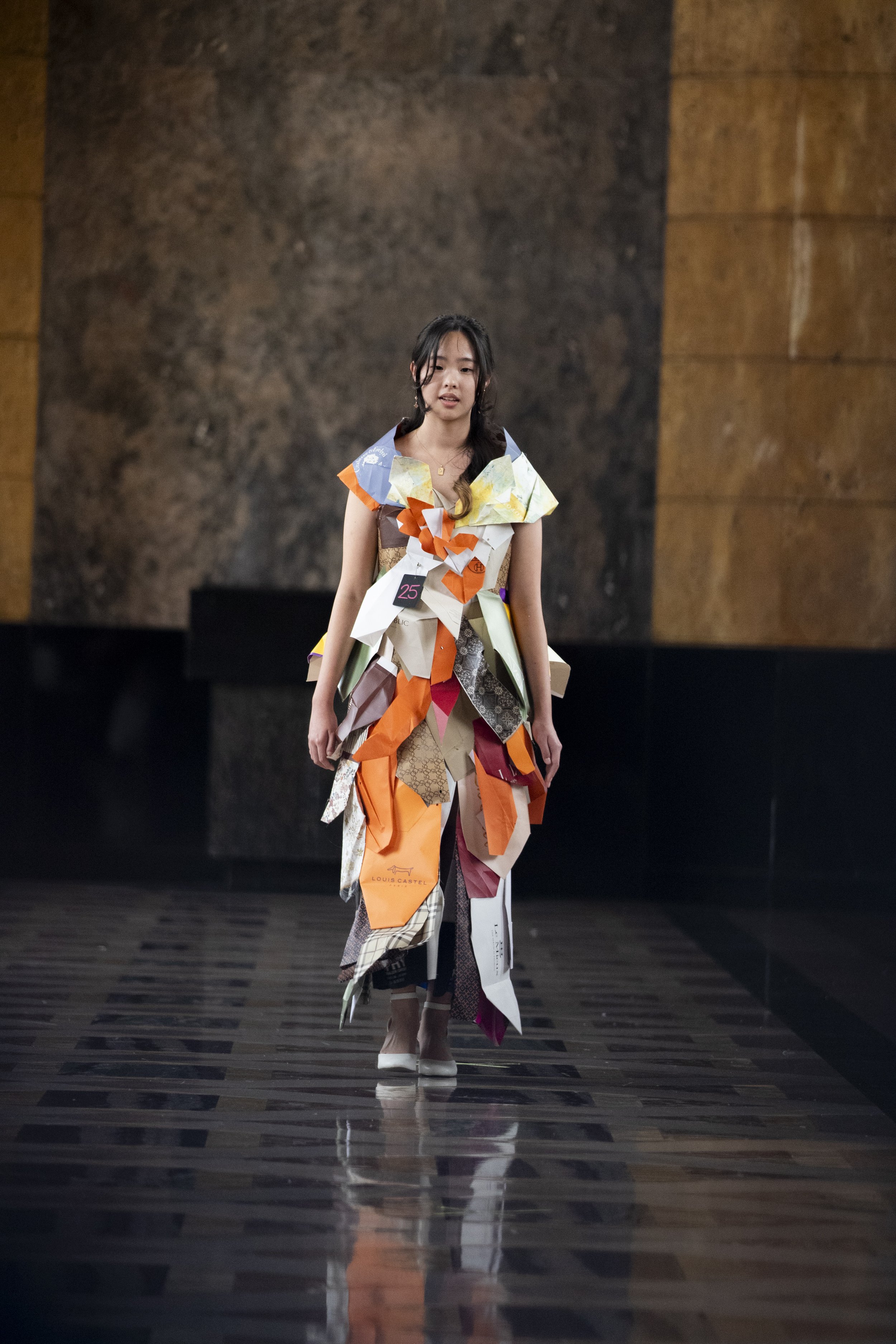
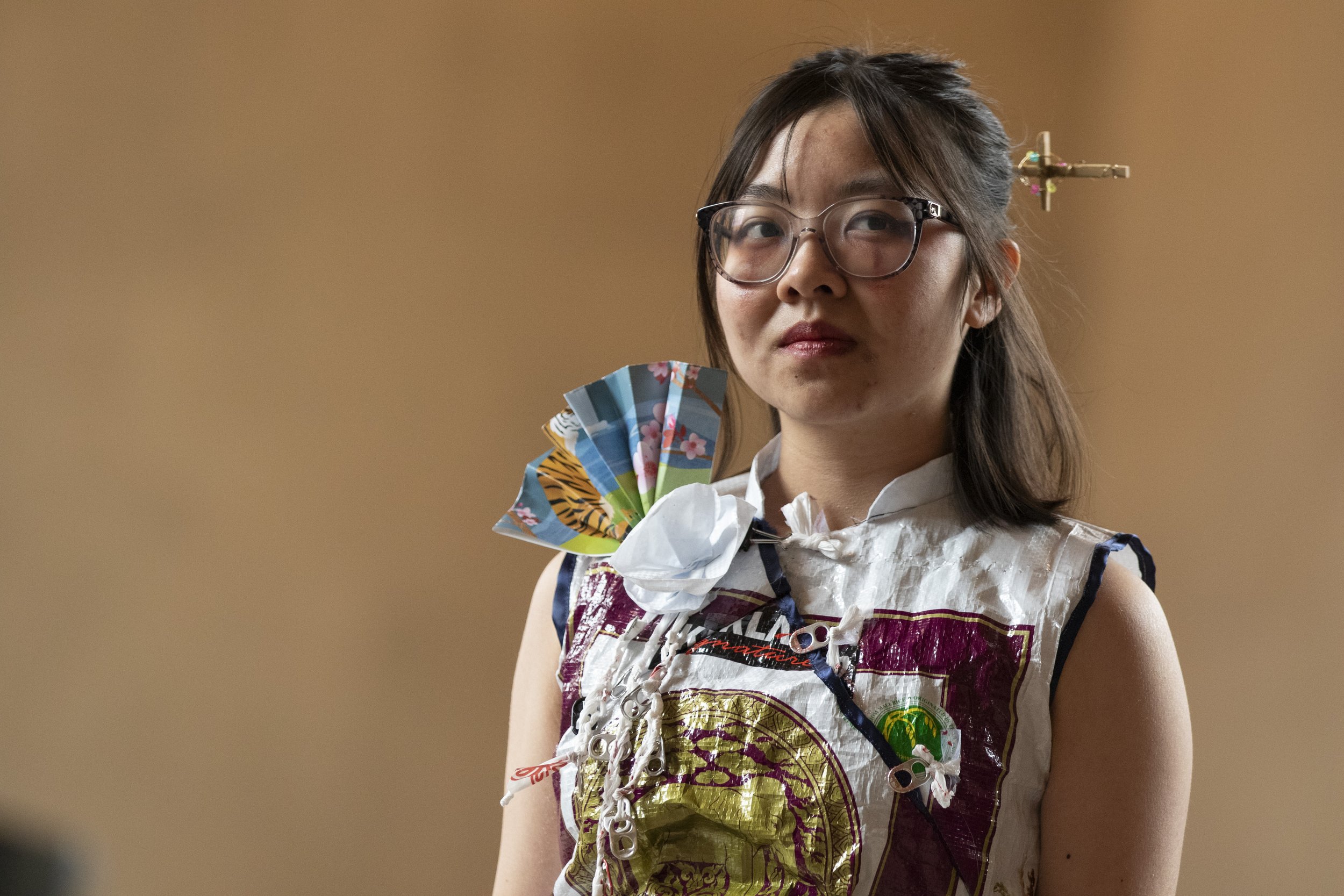
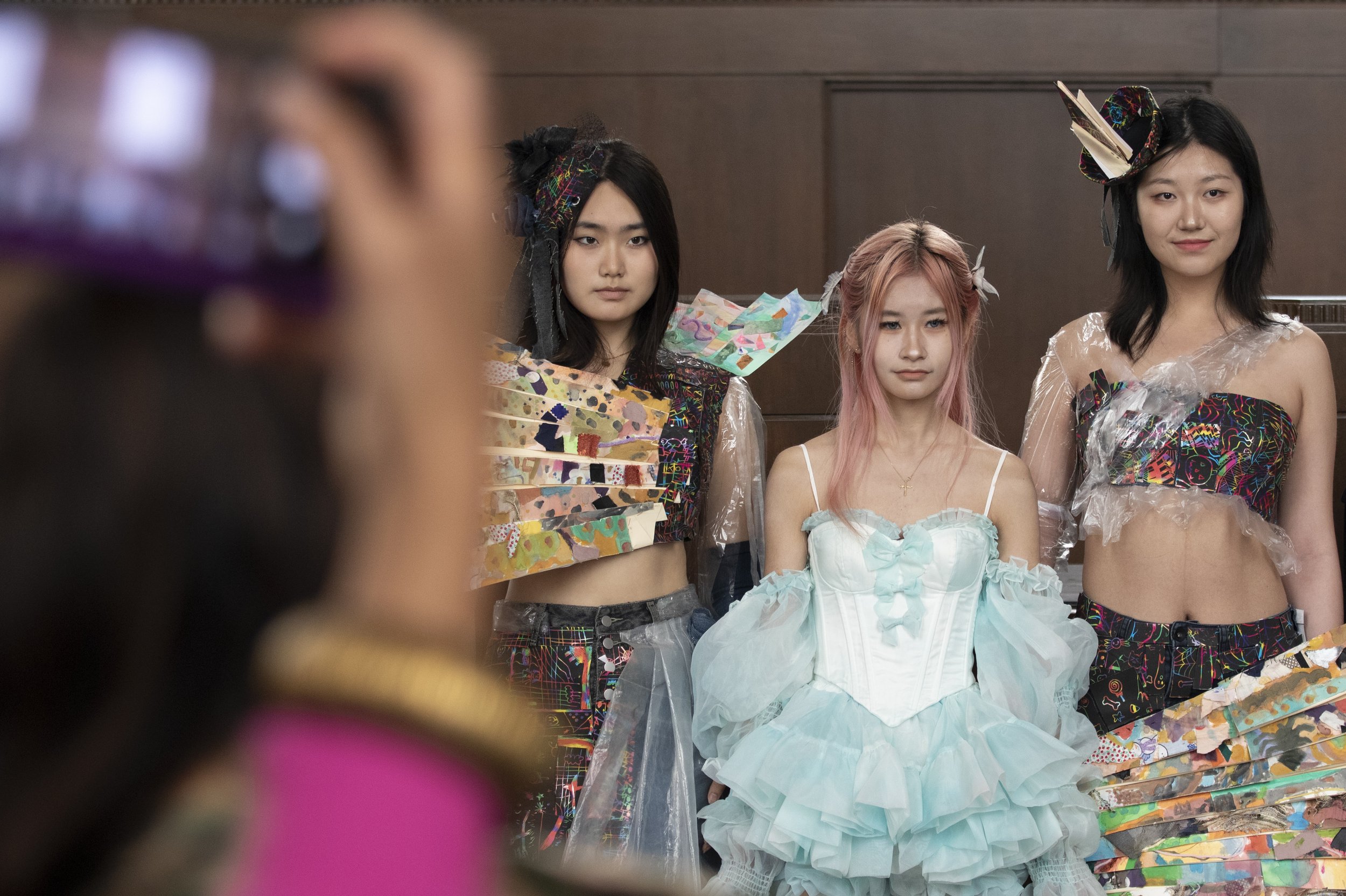
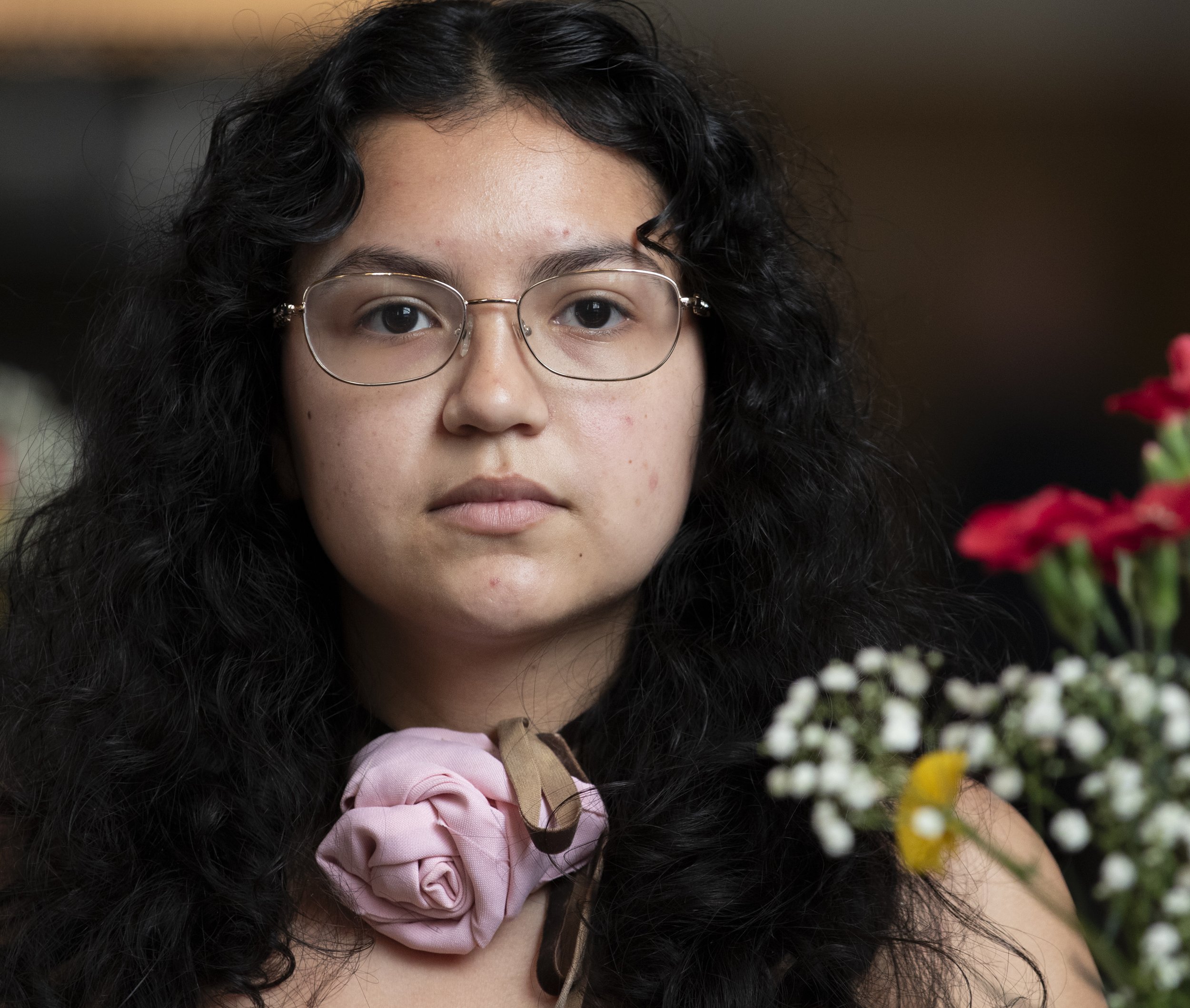
Popular music blared throughout the halls of the historic Union Station as thrifted, upcycled, and unorthodox fabrics strutted down the runway.
As part of its ongoing efforts to promote sustainable transportation, on April 22, Metrolink, Los Angeles’s major public transportation system, launched its very first student sustainable fashion show alongside free rides for all its systems in honor of Earth Day.
Organized by Metrolink’s marketing department, project manager Amber Moyers explained her inspiration for creating the fashion show.
“We’ve been working with students for the Student Adventure Pass, and we just thought it would be a great opportunity to partner with more colleges, schools, and universities and engage students with Earth’s birthday,” Moyers said.
Metrolink’s Student Adventure Pass is a grant-funded program that allows students in Southern California to ride the Metrolink for free.
The fashion show displayed works from over 20 different students located all over Southern California. The categories featured two distinct sections: upcycled textiles and unconventional fabrics.
Hillary Arechiga, a fashion design major at SMC, entered two sustainable looks into the show. Encouraged by Metro’s dedication to sustainability and fueled by her own creativity, Arechiga decided to use the event to venture into sustainable fashion design, creating a dress for only the second time. “I really like the traveling and the sustainability of it and how it's helping everybody get creative,” she said.
Arechgia submitted looks for both categories, featuring aspects of flowers and spring elements while being constructed out of reusable material. "They're made out of scrap fabric," Archiga said, pointing out the rosette, a rose-shaped decoration on her upcycled textile piece. "They're all handmade."
For her unconventional piece, Arechiga utilized recycled plastic tablecloths and other sources of upcycled plastics to create a dress mimicking flower petals.
Although her pieces are environmentally friendly, challenges arose while constructing the garments. “Well, I did have a vision, but then as the process went by, I realized that’s gonna be kind of hard to execute,” she said. Faced with the time constraints and the difficulty using the material, Arechiga decided to switch focus to something “more able to be fitting for a dress and not fall apart.”
“The fabric and plastic was much harder to sew since it had to be hand sewn,” said Arechiga.
Despite her struggles, Arechiga had an overall memorable experience. “I’m really proud of myself. I would never do anything like this, and now I’m here.” Arechiga said.
The aspirational fashion designer hopes to continue utilizing sustainable and environmentally friendly materials in her designs, as well as vegan products.
As the inaugural Metrolink sustainable fashion show comes to a close, student designers can continue to challenge themselves to create a brighter and greener industry.
“It’s such a great opportunity to work with them and give them a creative outlet, and be able to give them an opportunity to talk about why it’s important to them, and it was a lot of fun,” Moyers said.



